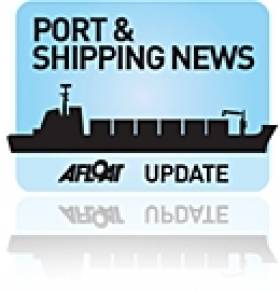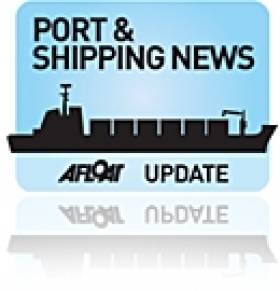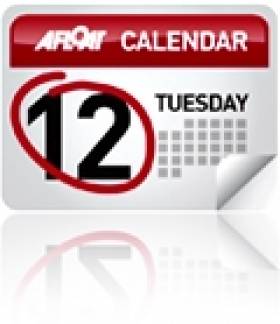Displaying items by tag: International Maritime Organisation (IMO)
#PORTS & SHIPPING – Today is the International Day of the Seafarer, and people around the world are being asked to use social networks to highlight just how important seafarers are as they transport more than 90% of global trade which are vital to our daily lives.
On this second year of the Day of the Seafarer, people are asked to tell the world of an object in their daily life that you can't live without, and which came by sea.
Take a photo of the object, write a description, record a song, make a film, whatever you prefer: and then just post it on the social platform of your choice and add the campaign slogan: "thank you seafarers".
Seafarers leave their homes and families, often for long periods to ensure that essential items and commodities on which our lives depend arrive safely at our homes.
So show the seafarers of the world - and your friends, too – your appreciation of the extraordinary services they render every day of their professional lives, under demanding and sometimes dangerous circumstances.
Day of the Seafarer is an innovative campaign that harnesses the power of social media to raise awareness of seafarers and their unique role. Everyone, regardless of where they live, can join the campaign online. So, on 25 June, you can join in by:
Sharing your post on Facebook, if you have pictures, videos or any special message, please share them on our wall.
Sending us a message @IMOHQ and @SeafarerDay using hashtag #thankyouseafarer
On pinterest, you can pin a picture of your chosen object with the caption "Day of the Seafarer"
For more infomation and for how participants can download the toolkits available of the campaign click HERE. In addition for a video message by Koji Sekimizu, Secretary-General of the International Maritime Organization (IMO).
The IMO is the United Nations specialized agency with responsibility for the safety and security of shipping and the prevention of marine pollution by ships. The organisation is headquartered in London on the banks of the Thames.
Reporting Inadequate Facilities for Handing Ship-Generated Waste
The Department of Transport's latest marine notice lays out the format for reporting inadequate harbour facilities for handling ship-generated waste.
Shipping companies depend on good standards at receiving ports and harbours in order to comply with the relevant EU directive. But the notice outlines that improvement of port facilities' waste handling is partly dependent on users reporting any inadequacies.
The notice includes the International Maritime Organization's standard format for reporting unsatisfactory port reception facilities.
For all ships, reports should be sent to the relevant port authority as well as the Ship-Source Pollution Prevention Section of the Department of Transport. Non-Irish flagged ships in Irish ports should also send any reports to the ship's flag state.
A PDF of Marine Notice No 17 of 2011 can be viewed/downloaded HERE.
UN Year of The Seafarer and World Maritime Day
To mark the occasion, the Secretary-General of IMO prepares a special message and this is backed up by a paper which discusses selected subjects in greater depth. The content of which is available on an audio MP3 file that can be downloaded by logging onto www.imo.org
The United Nations has designated 2010 as the UN Year of the Seafarer which incorporates World Maritime Day. The IMO will officially celebrate World Maritime Day at the organisation's London headquarters on the banks of the River Thames on Thursday, 23 September.
































































